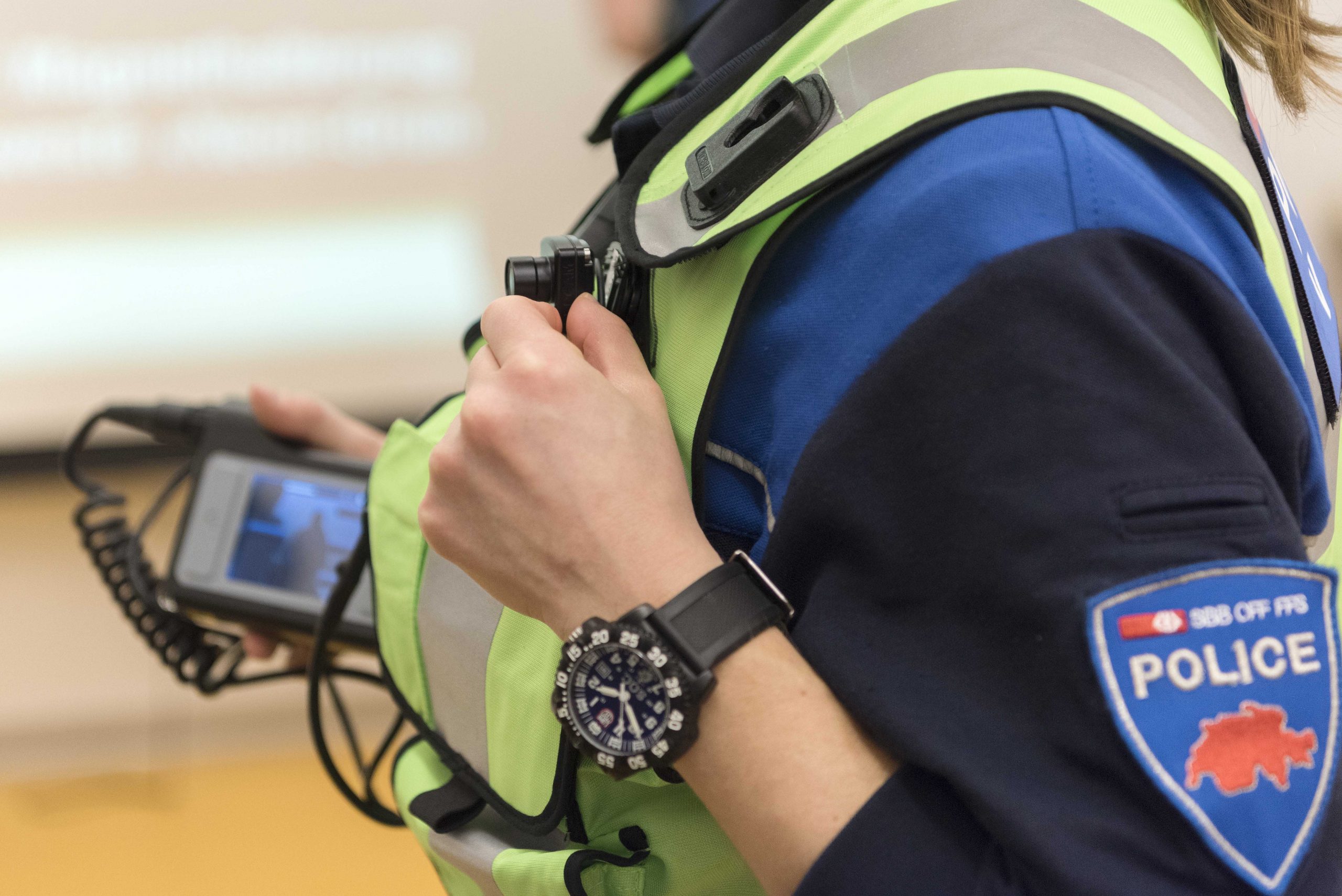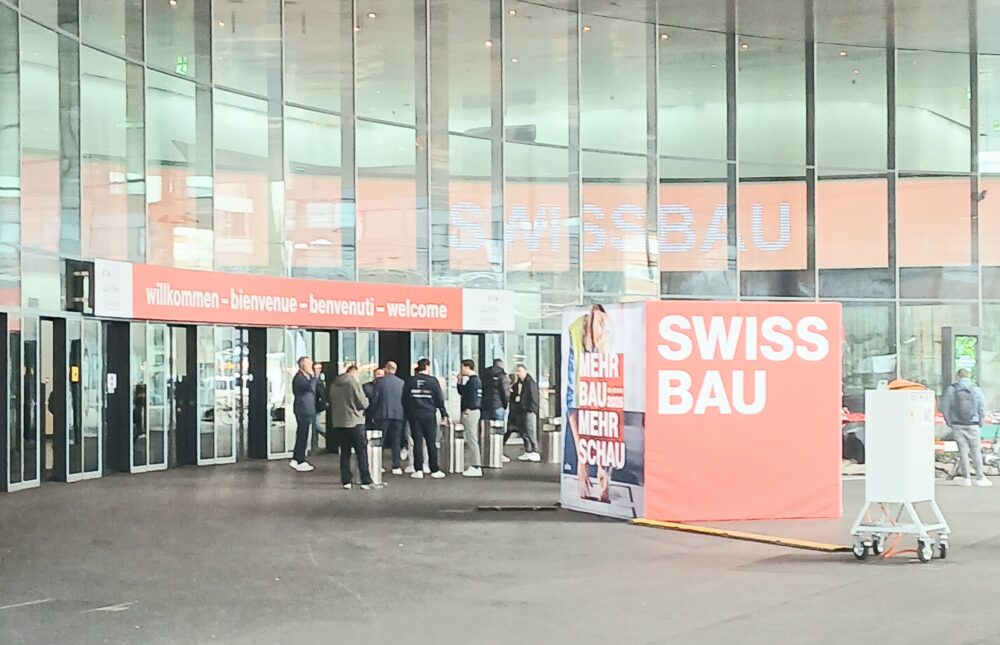Bodycams: de-escalating effect
Fifty assaults on police officers can be avoided every year if they wear a camera on their body. This conclusion is suggested by the scientists who evaluated the trial of the city police with bodycams. Another study also examined violence against the police.

Law enforcement officers are increasingly exposed to verbal and physical assaults. In addition to violence perpetrated by individuals, there have recently been repeated situations in which the police are attacked by groups. As part of the project "Police work in urban areas of tension (PiuS)", the Institute of Criminology at the University of Zurich was commissioned to evaluate these attacks with a survey of alleged perpetrators and victims and to propose measures.
Because attacks by individuals have already been well studied scientifically, the Criminological Institute has been commissioned to limit its investigation to attacks against police officers from groups. The investigation shows: There are only a few such group attacks each year, but they have a large psychological and physical injury potential each time. Half of the accused live in the city of Zurich, and most of the violent individuals are Swiss and male, including many young ones. More than a third of the alleged perpetrators are under 20 years old. And the violence differs: while the under-20s mainly throw stones and bottles, the assaults by the 20- to 25-year-olds mainly involve verbal abuse.
Better evidence available
Good equipment is a prerequisite for police protection. In addition, it should be examined whether cases of violence and threats against officers from groups can be coordinated and dealt with in one place at the public prosecutor's office. This request has been submitted to the Chief Public Prosecutor's Office of the Canton of Zurich. And the penal framework is to be utilized more by the judiciary. It is fatal when perpetrators assume that their actions have no consequences - this belief has been proven to promote violence. In addition, better evidence should be available in the future for attacks with a high potential for violence, which is why temporary installations of video cameras at certain hot spots should be possible.
The Institute of Criminology has determined that professional, friendly communication and an appropriate appearance by the police are of great importance for de-escalation or the avoidance of violence. Specifically, the authors of the study recommend that special dialog teams be deployed at major events such as demos or soccer matches. In Berlin and also in Bern, such dialogue teams are successfully in action. They actively seek dialogue with the population. The city police are conducting a pilot test with dialogue teams in 2018. In addition, the Criminological Institute recommends examining the use of body cams. Last year, this was already done in a trial - independently of the violence study.
17,000 police operations evaluated
As part of the PiuS project, a scientifically monitored trial with body cameras (bodycams) has been carried out at the Zurich city police (and the SBB transport police in Zurich and Lausanne). In Switzerland, the use of bodycams has been discussed for some time, but so far there have been no pilot projects and thus no answer to the question of whether bodycams have an effect.
The head of security and the commander of the city police have commissioned the Institute for Delinquency and Crime Prevention of the Zurich University of Applied Sciences (ZHAW) to clarify the question of whether bodycams are an effective and useful police tool.
The Zurich trial lasted 36 weeks, with police officers wearing the cameras only every other week. This allowed a direct comparison of shifts with cameras and those without. After each shift, they had to fill out a questionnaire. During the experimental phase, 17,198 missions were performed and 7822 questionnaires were filled out. The authors of the study came to the following conclusions: The majority of all deployments are peaceful. In every 200th deployment (0.5 %) there were physical assaults against police officers such as pushing, shoving or hitting, kicking or even hitting with an object. Police reported verbal assaults such as name-calling in about 4 percent of the deployments.
50 assaults less per year
In a comparison of the operations with body cameras and those without, the authors suggest a favorable effect of the body camera, without, however, describing the positive effect as statistically significant. In the extrapolation of the examined cases, however, the relevance is given: If all police officers in the four units that participated in the experiment wore body cams, there would be about 50 fewer cases of physical assaults on police each year. In addition, the bodycam promotes objectivity in controversial operations. It also provides additional evidence in complaints and criminal proceedings. The investigation clearly shows that the boycam certainly does not have an escalating effect: In many cases, a situation calmed down the moment the police patrol informed the counterpart that they would now turn on the camera. More than half of the police officers who participated in the trial are in favor of the introduction of bodycams.
Request for definitive introduction
The head of the security department, Richard Wolff, in agreement with the police commander, will submit an application to the city council for the definitive introduction of body cams. If the executive approves the application, it will be submitted to the Zurich City Council, which is responsible for the necessary legal basis. According to Wolff, the use of body cams should be regulated as in the trial: The bodycam will only record if a situation already has a certain level of escalation or if the opponent requests this from the police. The costs for the project are estimated at 100,000 to 200,000 francs.
Press Release Communication Security Department City of Zurich
The final reports on the subprojects "Violence against police officers" and "Bodycams" as well as the scientific reports of the University of Zurich and the ZHAW are available on the Internet. https://bit.ly/2GV5w1e









